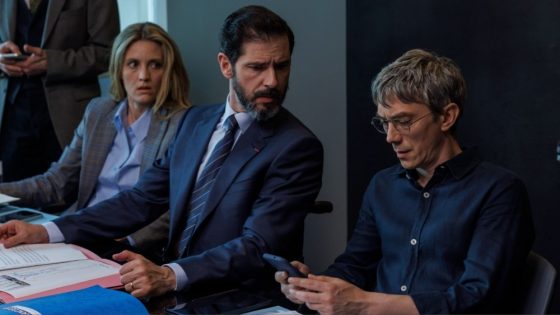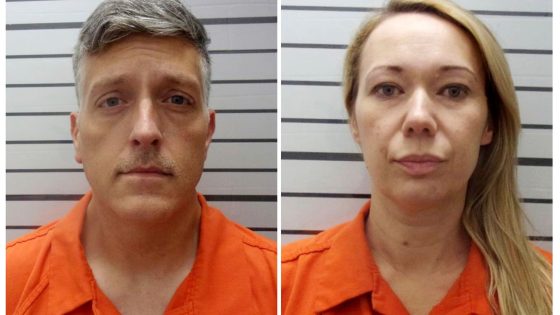Of the many politically-tinged projects premiering at this year’s Series Mania, French thriller “In the Shadows” could very well claim the best pedigree.
While showrunner Pierre Schoeller has spent a career tracing his country’s corridors of power through films like “Versailles” and “The Minister,” he found a most opportune creative partner working with politician Edouard Philippe to adapt the latter’s 2011 novel.
Perhaps the name rings a bell. When Philippe published his eponymous novel more than a decade ago, he was a small city mayor running for a seat in France’s National Assembly. By the time he signed on to co-write this small screen adaptation in 2020, Philippe was coming off three years as French Prime Minister – while planting the seeds for an anticipated presidential run of his own in 2027.
Only don’t expect “In the Shadows” to mirror Philippe’s own ascension – or that of any one political figure, as the showrunner explains.
“Making political fiction means creating a parallel universe,” Schoeller tells Variety. “You have to be wary [of hewing too close to real life]. Either you’re repeating what we already know, just not as well, or you move too far in the other direction and find yourself in the realm of satire and caricature.”
Fleshing out a source text that left personal details and party affiliations purposefully opaque meant updating a political context a generation removed from that of 2011. This 2024 iteration folds in concerns of technological malfeasance evocative of the Cambridge Analytica scandal alongside a resurgent far right and widespread apprehension about the very electoral process. It also meant anchoring the narrative in a better-defined partisan reality.
‘In the Shadows’
Series Mania
For this tale of a presidential campaign staff grappling with concerns that they might have won a contentious primary in a less than-above-board-way, the creative staff chose to explore the right.
“The right-wing’s political culture is more rigid, hierarchical and deferential to leadership,” says Schoeller. “Which made the context more interesting once this political team begins to doubt their own candidate.”
“Anatomy of a Fall” breakout Swann Arlaud stars as César, the chief advisor to an outgoing minister who recently emerged victorious in the right-wing presidential primary. As the right’s newly minted presidential standard-bearer, Paul Francoeur (Melvil Poupaud) must consolidate his party’s reactionary flank while keeping ahead of a political — and criminal — scandal that threatens to engulf him and his campaign.
“In France, the campaign narrative has often gone unexplored,” says Schoeller. “And it’s such a particular point of time, because the notion of responsibility isn’t the same. A campaign is like a detective story; both are countdowns. You just have to do whatever you can to get to the end.”
While that countdown to Election Day — offset by an ever-more paranoid web of intrigued linked to untrustworthy election technology and the malefactors who wield it — might structure the six-part series, individual episodes explore contemporary concerns from unexpected angles. Episode two, for instance, sees the presidential campaign face off against an irate police union – an uncommon schism in center-right coalitions.

‘In the Shadows’
Series Mania
“We sought to punctuate the series with political questions and situations that we haven’t seen before, that are unprecedented in [contemporary France],” says Schoeller. “But then, instability is the story of our times.”
“None of the characters know where to lean, onto what branch they can grab without breaking,” he continues. “And that becomes perilous for those trying to influence and affect their own world. That’s what makes the serious so contemporary – it deals in modern paranoia.”
As should go without saying, the series also deals in games of power.
“Power is a great subject, a great motif for art,” says Schoeller. “It’s part of the great human passions, informing every human story, but is also completely silent, invisible and hard to grasp. Power is hidden by nature, only coming to light through spoken rituals. And obviously a presidential election is one such ritual.”
Co-lead Melvil Poupaud cuts an equally unexpected figure as the nexus of this power game, playing a force of nature whose disability — and use of a wheelchair — has no bearing on his electoral sway.
“That was the simple reality of the character,” the showrunner explains. “We wanted to create an original figure, someone with no current point of reference.”
“Melvil put all his energy into his torso and not his legs,” Schoeller continues. “That focused his performance in the upper part of the body, and it built the character’s stature as a political leader, forcing those around him had to lean forward to speak. It helped visualize his power.”

‘In the Shadows’
Series Mania
Source Agencies


